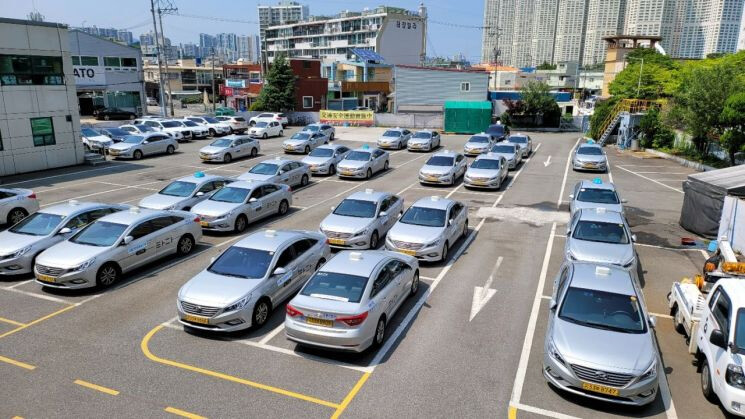
Seoul, South Korea – Seoul Metropolitan Government is accelerating efforts to implement a new wage system for corporate taxi drivers, four years after introducing a 40-hour workweek with a fixed salary. The move aims to address low wages and the persistence of a modified version of the abolished quota system, which had been a major point of contention for drivers.
However, the success of this initiative hinges on the cooperation of the central government and the ability to navigate the complex interests of various stakeholders.
Four New Wage Models Proposed After extensive consultations with labor unions and management, Seoul has developed four new wage models: performance-based pay linked to driving hours, a flat-rate system, a self-driving taxi model (lease system), and a part-time work system.
These models offer drivers more flexibility and, in most cases, higher earnings compared to the current system. For instance, the performance-based pay model sets a lower base monthly income but offers drivers a higher percentage of additional earnings.
Addressing Declining Taxi Industry The Seoul Metropolitan Government has emphasized the need to stabilize the corporate taxi industry, which has seen a significant decline in the number of drivers over the past decade. This decline has led to reduced service quality and operational difficulties for many taxi companies.
The previous wage system, which included a 40-hour workweek and a fixed salary, has not been fully effective in addressing these issues. Many taxi companies have continued to implement modified versions of the quota system, where drivers are required to meet certain daily or weekly revenue targets.
Regulatory Hurdles While Seoul has proposed these new wage models, their implementation requires approval from the Ministry of Land, Infrastructure and Transport. The ministry has been slow to approve the city's request for regulatory sandboxing, citing concerns raised by some stakeholders.
Diverse Opinions The proposed wage models have received mixed reactions from various stakeholders. While taxi drivers' unions generally support the new models, labor unions representing public transportation workers have expressed concerns that they could lead to worse working conditions.
Looking Ahead Seoul officials remain optimistic about the potential of the new wage models to revitalize the city's taxi industry. However, the success of these models will depend on several factors, including approval from the central government, cooperation between labor and management, and the willingness of drivers to adopt new ways of working.
[Copyright (c) Global Economic Times. All Rights Reserved.]






























